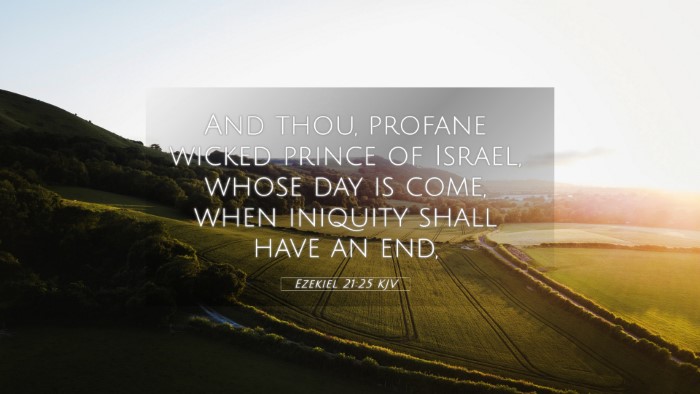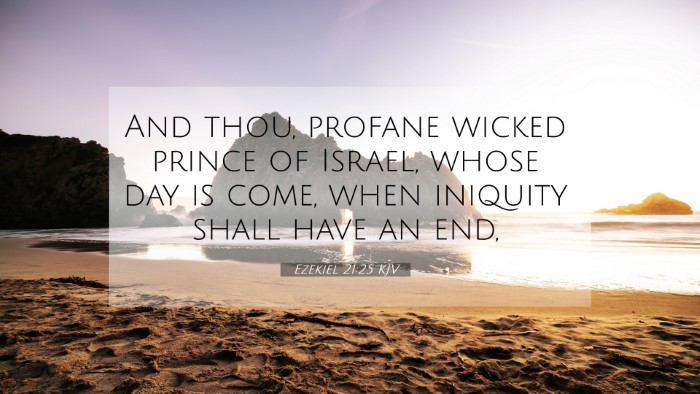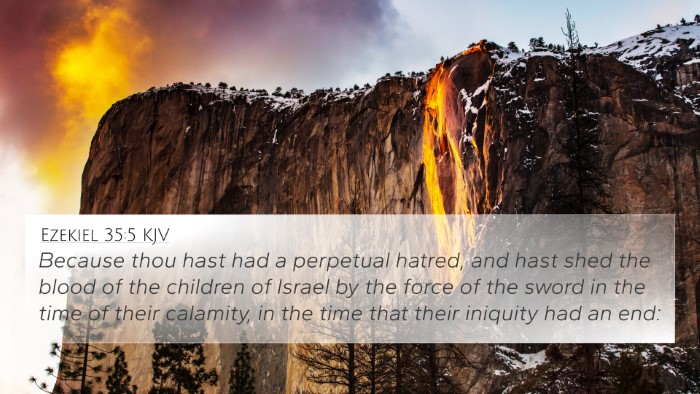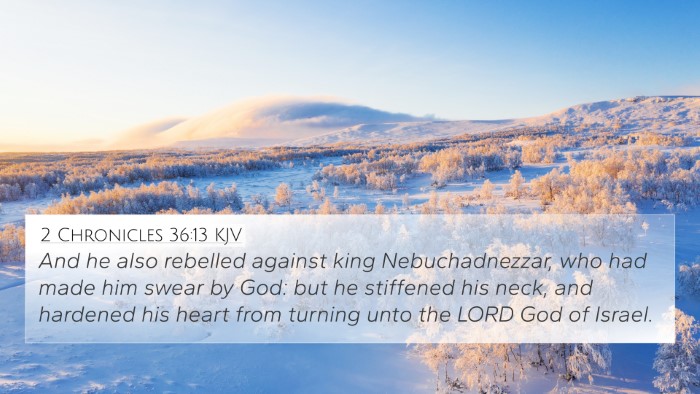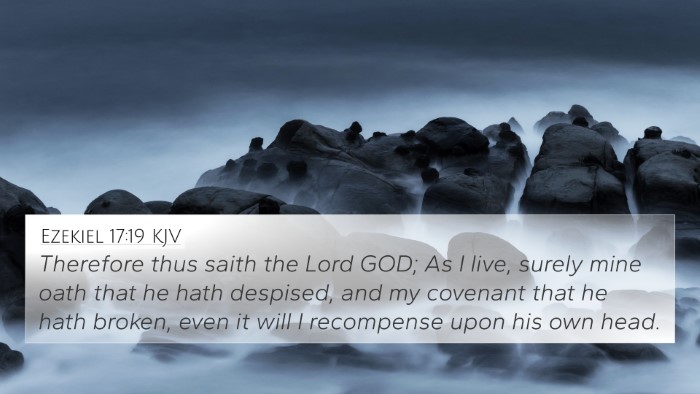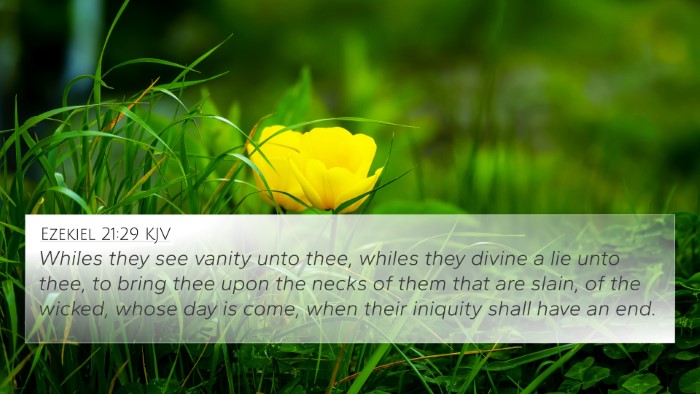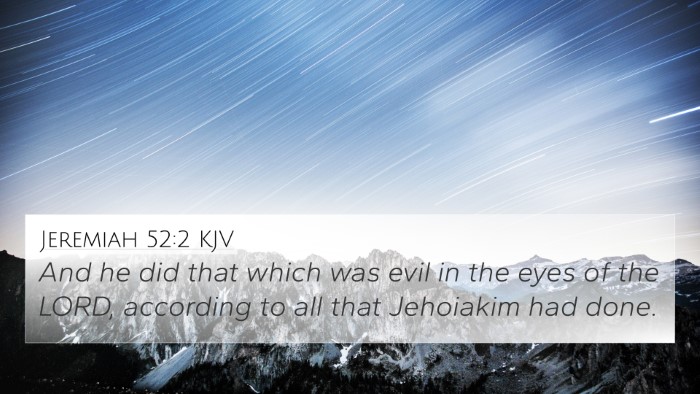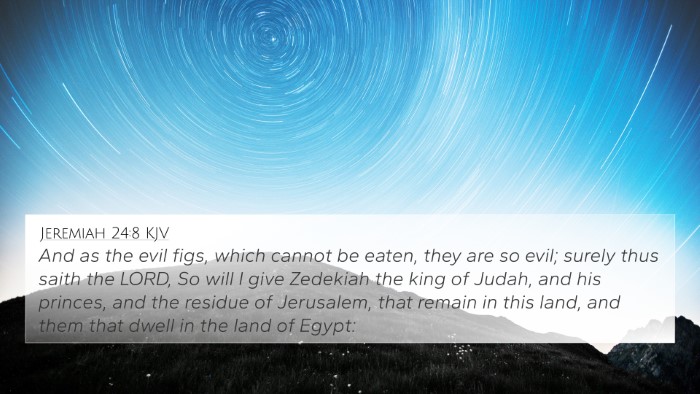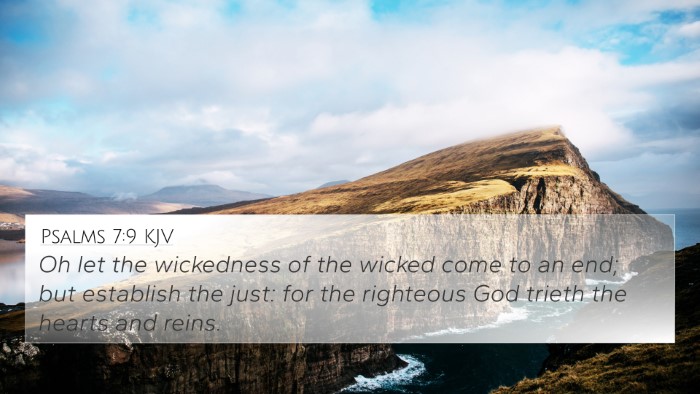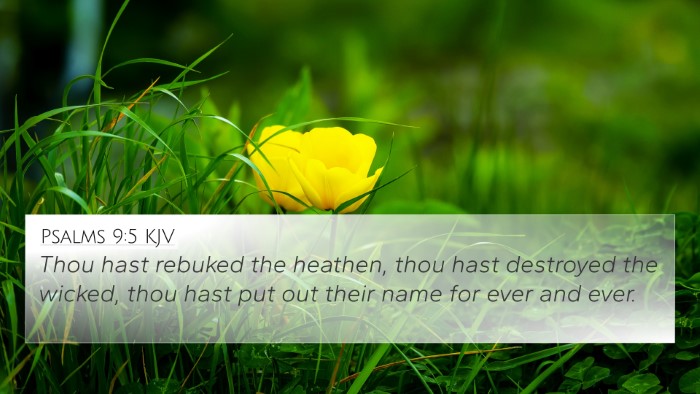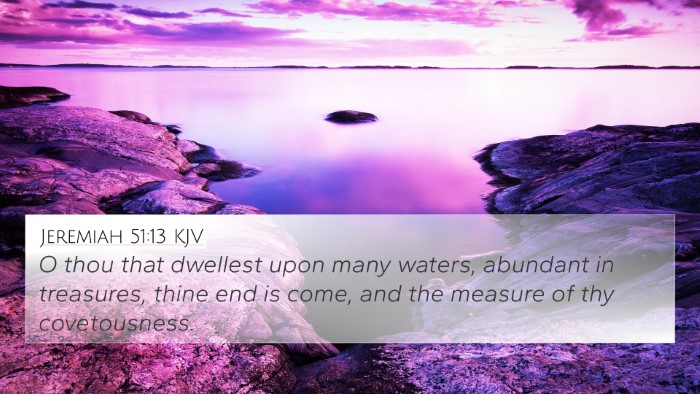Ezekiel 21:25 - Summary and Interpretation
Verse Context: Ezekiel 21:25 states: "And thou, profane wicked prince of Israel, whose day is come, when iniquity shall have an end." This verse addresses the leadership of Israel, proclaiming a divine message of judgment against its corrupt rulers. The text calls attention to a particular leader who has not only profaned the name of God but also led the nation into sin.
Meaning and Interpretation
The interpretations provided by public domain commentaries such as Matthew Henry, Albert Barnes, and Adam Clarke help deepen our understanding:
-
Matthew Henry:
Henry emphasizes the serious nature of God’s judgment. He describes the "profane wicked prince" as an unfaithful leader whose actions lead the people astray. God’s pronouncement of judgement signifies that the time for correction has arrived, and the consequences of iniquity are imminent.
-
Albert Barnes:
Barnes interprets the 'prince' as the king of Judah, likely Zedekiah, who failed in his responsibilities. He notes that the 'day' mentioned symbolically refers to a time of reckoning for leaders who mislead their followers. Barnes highlights the end of iniquity, indicating that divine justice is about to be executed.
-
Adam Clarke:
Clarke points to the notion of divine patience coming to an end. He stresses the accountability of leadership and the inevitability of divine retribution. Clarke explains that the judgment is both a warning to others in positions of power and an assurance that God will not allow evil to remain unchecked.
Cross-References
The verse draws parallels and connections with several other biblical texts, creating a comprehensive network of themes related to judgment, leadership, and accountability:
- Jeremiah 22:1-5: Addresses the conduct of rulers in Judah.
- Ezekiel 18:30: A call for repentance that aligns with the theme of ending iniquity.
- Proverbs 16:12: Discusses righteousness in leadership, pertinent to Ezekiel 21:25.
- Isaiah 10:1-4: A warning against unjust leaders and the judgment that follows.
- Romans 13:3-4: Discusses the role of rulers as servants of God, connecting to the accountability theme.
- Matthew 23:1-4: Jesus criticizes the leadership of His day, analogous to Ezekiel’s criticism.
- 2 Chronicles 36:12: A historical account of the actions of King Zedekiah echoed in Ezekiel's prophecy.
Thematic Connections
This verse encapsulates several themes within the biblical narrative:
- Leadership Accountability: A recurring theme throughout the Bible, emphasizing that those in power are held to a higher standard.
- Divine Judgment: The principle that God will not allow persistent iniquity without response.
- Call to Repentance: This connects with various scriptures that urge a return to righteousness.
- The End of Iniquity: A hopeful note that evil will eventually be addressed and justice restored.
Tools for Bible Cross-Referencing
Understanding the connections and cross-references can be vital for deeper biblical studies:
- Using a Bible concordance allows research into themes and terms.
- A cross-reference Bible study guide can reveal relationships between verses.
- For a comprehensive approach, Bible reference resources can provide thematic analysis and historical context.
Conclusion
Ezekiel 21:25 serves as a vivid reminder of the seriousness of leadership and accountability in biblical theology. Through the insights from public domain commentaries and connections with other scriptures, it illustrates the enduring principle that while leaders may fail, God ultimately ensures justice.

